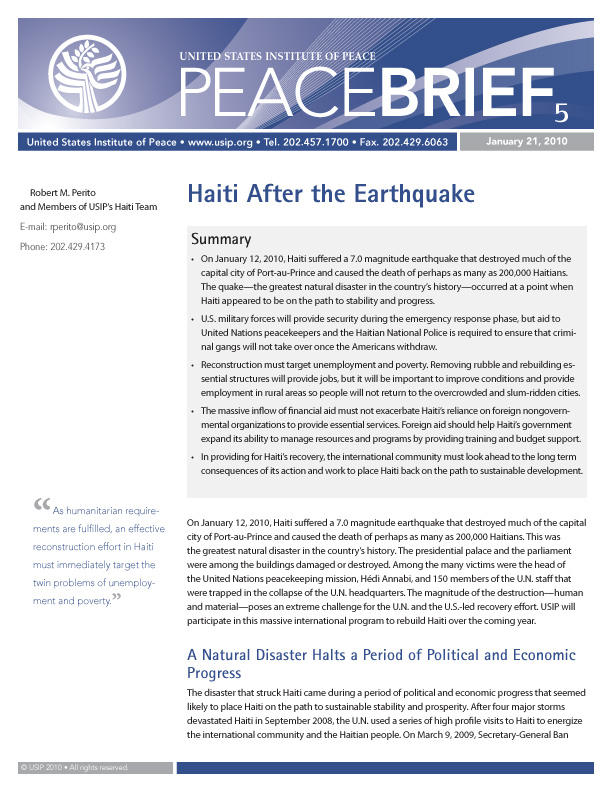Haiti After the Earthquake
USIP assesses the damage done by the devastating earthquake, and recommends strategies for Haiti’s recovery and reconstruction.

Summary
- On January 12, 2010, Haiti suffered a 7.0 magnitude earthquake that destroyed much of the capital city of Port-au-Prince and caused the death of perhaps as many as 200,000 Haitians. The quake--the greatest natural disaster in the country’s history--occurred at a point when Haiti appeared to be on the path to stability and progress.
- U.S. military forces will provide security during the emergency response phase, but aid to United Nations peacekeepers and the Haitian National Police is required to ensure that criminal gangs will not take over once the Americans withdraw.
- Reconstruction must target unemployment and poverty. Removing rubble and rebuilding essential structures will provide jobs, but it will be important to improve conditions and provide employment in rural areas so people will not return to the overcrowded and slum-ridden cities.
- The massive inflow of financial aid must not exacerbate Haiti’s reliance on foreign nongovernmental organizations to provide essential services. Foreign aid should help Haiti’s government expand its ability to manage resources and programs by providing training and budget support.
- In providing for Haiti’s recovery, the international community must look ahead to the long term consequences of its action and work to place Haiti back on the path to sustainable development.
About This Brief
This report was prepared in the immediate aftermath of the earthquake that struck Haiti on January 12, 2009. It represents the views of USIP staff members involved in the Institute’s Haiti program, which has held public forums on Haiti, conducted conflict resolution training for Haitian civil society and provided legal assistance to Haiti’s government. Robert Perito, director of the Haiti program, prepared the report. Contributors to the Peace Brief included Colette Rausch, Vivienne O’Connor, Mary Hope Schwoebel, Kathleen Kuehnast and Jeremy Pam.
Learn more about progress since the earthquake in USIP's latest publications on Haiti.

